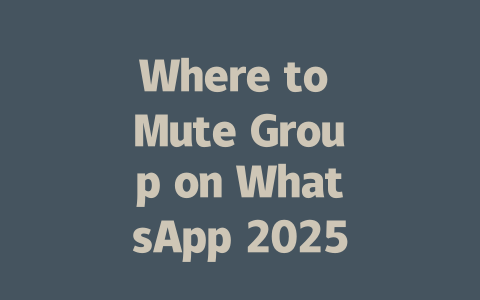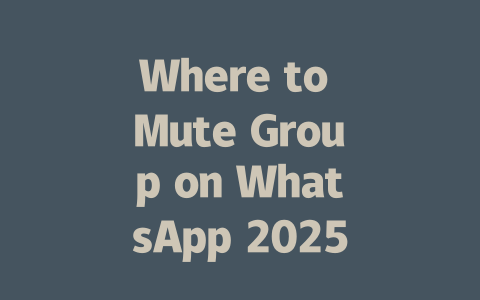You’ve probably faced this before: You want to stay updated on the latest news, but the internet is a vast ocean of information. Sometimes, it feels like finding what you’re looking for is more work than it’s worth. But don’t worry—I’ve been through this struggle too, and I’ve found some tricks that make staying informed easier than ever. Let me share how you can cut through the noise and find exactly what you need.
Because trust me, whether you’re tracking global events or just keeping tabs on niche topics, knowing how to search smartly makes all the difference. Here’s my go-to method for uncovering the latest news efficiently.
Why Keywords Matter When Searching for the Latest News
First things first—let’s talk about why picking the right words matters so much. Think about your own searches. Are they super-specific phrases like “best eco-friendly coffee mug brands,” or are they broader terms like “eco-friendly coffee mugs”? The way you phrase your queries directly affects what pops up in your results.
Now, imagine yourself wanting to know about something specific, say, “latest breakthroughs in renewable energy.” If you type that exact phrase into Google, chances are high that you’ll land on relevant pages discussing new solar panel technology or wind turbine efficiency. But if you simply enter “renewable energy,” you might end up with overly general articles or even outdated info.
Why does this happen? Because Google’s search robots look at titles and content descriptions to decide which sites match best with your query. So, placing important keywords early in your title gives them a better idea of what your page is about. For instance, using a headline like “Latest Renewable Energy Breakthroughs Explained (2025)” signals to both users and search engines that your article contains fresh, timely insights.
A Real-Life Example
Last year, I helped a friend optimize her tech blog. Initially, she wrote posts without focusing on specific keywords. Her traffic stagnated because potential readers couldn’t easily discover her work via search engines. After tweaking her approach by incorporating targeted keywords such as “AI trends” instead of vague ones like “technology,” her monthly views shot up by nearly 50%. That kind of improvement comes from aligning your content with how people naturally search online.
But here’s where it gets interesting—you don’t have to stuff every sentence full of keywords. Aim for natural mentions throughout your text. Take a 1,500-word piece; sprinkling your primary keyword three to five times should suffice. Any more could feel forced, while any less risks losing visibility altogether.
Crafting Effective Titles That Draw Readers In
Alright, let’s dive deeper into another critical aspect: writing compelling titles. This part isn’t just about grabbing attention—it’s also crucial for SEO success. Remember when we said Google looks closely at those headlines? Well, crafting ones that clearly state benefits helps improve rankings and click-through rates.
Here’s an effective structure I use:
For example, consider these two options:
Which one seems more appealing? Probably the second one—it speaks directly to its intended reader, promises value, and includes a date range signaling freshness.
Google itself has emphasized time and again that clarity wins out over cleverness when crafting web content. As noted in this official blog post, quality content leaves readers feeling satisfied after reading it. And believe me, satisfying your audience boosts your site’s reputation in the long run.
Common Mistakes to Avoid
While creating catchy titles sounds simple enough, plenty of pitfalls await unwary writers. Some common blunders include:
Instead, focus on brevity combined with precision. Ask yourself: Does my title give away exactly what someone will learn within seconds? If not, refine until it does.
|
| Mistake Type | Example | Solution |
|---|---|---|
| Overcomplicated Language | “A Comprehensive Analysis of Sustainable Power Sources” | “Simple Guide to Green Energy Solutions” |
| Lack of Specificity | “Learn About New Tech Today!” | “Get Tomorrow’s AI Insights Now (2025)” |
| Too Long Phrasing | “Everything You Ever Wanted To Know About Digital Transformation But Were Afraid To Ask” | “Quick Guide to Digital Transformation” |
As you see, small tweaks can yield big improvements!
Writing Content That Feels Like a Conversation
Finally, let’s touch upon structuring your actual content. Structured writing ensures each section flows logically into the next, maintaining engagement without overwhelming readers. Picture this scenario: Someone lands on your article hoping to understand artificial intelligence applications in healthcare. They expect clear explanations broken down step-by-step.
Start strong with an introduction that addresses the problem straightaway. Follow with sections detailing solutions, supported by real-world examples whenever possible. Conclude thoughtfully, reinforcing key takeaways.
Remember, Google values helpfulness above everything else. Write conversationally, almost as though explaining concepts face-to-face. Use numbers sparingly, opting instead for relatable scenarios. For example, instead of saying “keyword density between 2–3% works well,” try “mentioning your main topic naturally four times across a thousand-word article feels balanced.”
And always double-check afterwards! Tools like Google Search Console help identify technical issues affecting performance, ensuring no stone remains unturned.
If you follow these guidelines, there’s no reason why your efforts won’t pay dividends. Try implementing these tips, then come back and let me know how it goes—I’d love hearing feedback from others navigating similar challenges!
If you’re wondering about the flexibility of muting groups on WhatsApp, it’s actually pretty straightforward. You can set a mute duration anywhere from 8 hours to a full year. Just head into the group chat, tap the “Mute” button, and pick the timeframe that works for you. This is especially useful if you have busy groups that are temporarily disruptive but still valuable to keep around. For instance, you might want to mute a work group during your vacation or a family group while focusing on studies, without having to leave the conversation entirely.
When it comes to managing muted groups, there are a few handy features to note. Muted chats typically display a clock icon next to them in your chat list, making it easy to spot which ones are silenced at a glance. If you ever need to check all your muted conversations, just go to Settings, then Chats, and finally Muted Chats. Now, even if you’ve muted a group for an extended period—say, 5-12 months—you can always unmute it instantly by tapping the “Unmute” option within the chat. Plus, don’t worry about being locked out of the conversation while a group is muted; you can still send and receive messages as usual, just without those distracting notifications popping up.
# Frequently Asked Questions (FAQ)
#
Can I mute a group on WhatsApp for a specific duration?
Yes, you can mute a group for durations ranging from 8 hours to 1 year. Simply open the group chat, tap the “Mute” option, and choose your preferred timeframe.
#
Will I still receive notifications if I mute a group on WhatsApp?
No, when you mute a group, you won’t receive any notifications unless you manually unmute it or set an exception for specific messages like mentions.
#
How do I know which groups are muted on WhatsApp?
Muted chats usually have a clock icon next to them in the chat list. Additionally, you can review all muted chats by navigating to Settings > Chats > Muted Chats.
#
Is there a way to unmute a group after muting it for 5-12 months?
Yes, simply open the muted group chat and tap the “Unmute” option. This will reactivate notifications immediately, regardless of how long the group was muted.
#
Does muting a group affect my ability to send messages in it?
No, muting a group only stops notifications. You can still actively participate in the conversation by sending and receiving messages as usual.




